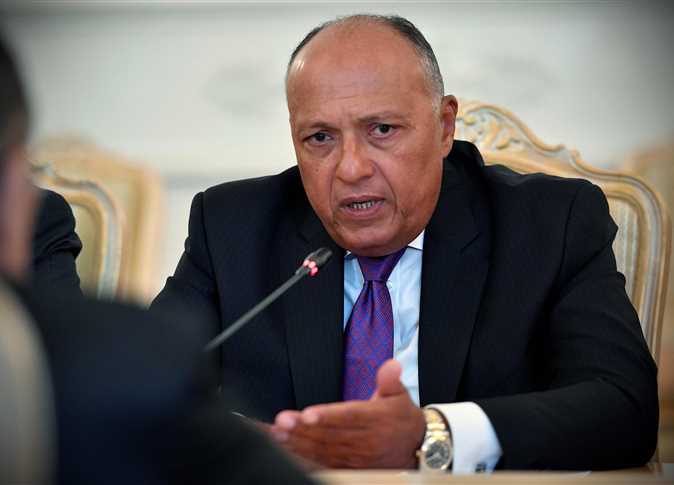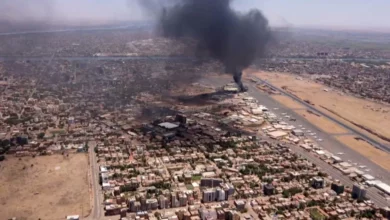
Egypt’s Foreign Minister Sameh Shoukri on Wednesday expressed astonishment at comments made by his Sudanese counterpart Ibrahim Ghandour earlier in the week in which he suggested that Egypt is eating into its share of Nile water since the two countries signed a 1959 water treaty.
Shukri explained that Sudan uses its share of Nile water, estimated at 18,5 billion cubic meters per year, but that its capacity for absorbing that share has been lacking, leading some of that water to unintentionally sip into Egypt.
“In recent years, Sudan’s absorptive capacity for its [water] share has been insufficient, and a part of the surplus has unintentionally made its way into Egypt, with Sudan’s consent,” Shoukri said, adding that “this was a burden and a danger to [Egypt’s] High Dam due to the unexpected increase in [water levels], especially during high flood times, which made Egypt in vain discharge those excess quantities in the river or in the Toshka Lakes behind the dam.”
Shukri noted that he is surprised that Ghandour expressed the matter in the terms he did, talking about a creditor and debtor in the water relations between the two countries.
He said that he does not understand why the Foreign Minister brought up the subject at this particular time, when the tripartite negotiations between Egypt, Sudan and Ethiopia have just reach a deadlock, questioning the motives behind such a move.
In his statements on Monday, Ghandour said that the time has come for Egypt to pay what it owes of water to Sudan, adding that the Grand Ethiopian Renaissance Dam project will preserve Sudan’s share of water.
“Now the creditor may stop giving this debt, and it is clear that the debtor does not want this creditor to stop,” Ghandour added.
He explained that Egypt fears the Renaissance Dam because it does not want to lose Sudan’s share of Nile water, which it wrongfully has taken.
Ghandour also attacked Egyptian media saying, “If Khartoum takes what is written in the Egyptian press seriously, we will start what we do not want to”.
“But we do not take these newspapers seriously and we rely only on declared official positions,” he continued.
Edited translation from al-Masry al-Youm




